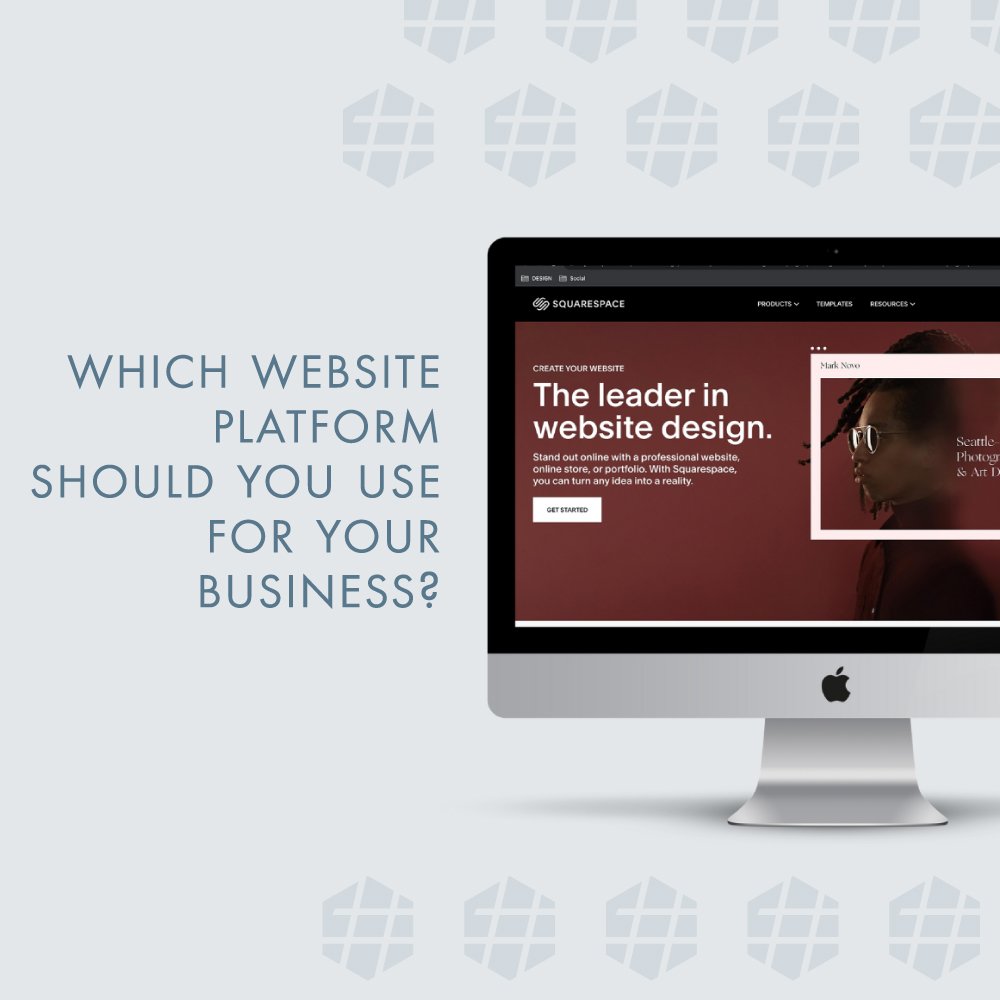Which Website Platform Should You Use?
You know what builds brand visibility and credibility, improves brand sentiment, and ultimately increases conversions?
A well-designed, thoughtfully laid out website created with an audience-first approach.
But, with so many website platforms out there to choose from, how do you know which will best serve YOUR business? When working with agency partners here at Media Shop Collective, we take industry type, business goals, specific website objectives, and many other factors into consideration before making our recommendations. In this blog we’re reviewing the four most popular website platforms: Wix, Squarespace, WordPress, and Webflow to help you determine which platform is best for your business.
Wix
Wix - the perfect platform for DIYers and small businesses. This is the first-choice platform for many small businesses because there is no coding experience required, which is a HUGE win for those of us who don’t speak the language.
Wix offers everything you need to launch a basic starter site with some SEO capabilities, incredible customer support, and easy to use templates. However, it is important to note that there is no free trial available and once you publish your website, you cannot change the theme. This makes it tough to evolve your site as your brand and business grow.
PROS:
✓ Simple template designs
✓ Easy to set up and use
✓ No coding experience required
CONS:
X Cannot change theme after publishing
X No free trial
Squarespace
Ahh Squarespace - what a platform!
This is one of the options that we use most frequently for our agency partners. With beautifully designed templates and an easy-to-learn, intuitive interface, what’s not to love!
One of the best features from Squarespace is their mobile responsive templates. This means that their templates are optimized for both computers and mobile devices. As I’m sure you’ve heard before, we live in a mobile-first world now, so this feature is invaluable.
Squarespace also offers more SEO customization in comparison to Wix, giving your business a higher chance of being found online organically by your ideal customer. With all this in mind, we typically recommend Squarespace for small to medium-sized businesses.
PROS:
✓ Best designed templates
✓ Intuitive interface
✓ Great customer support
CONS:
X Limited integrations and plugins
X No free plan
WordPress
This is where things get a bit more advanced. WordPress is one of the most flexible platforms when it comes to design, but it does require more knowledge and experience with coding.
WordPress supports full design customization with themes and plugins. If you’re not familiar, plugins are software additions that allow you to customize your design and optimize your content. WordPress also has the best SEO capabilities out of these four platforms IF a plugin is installed. There are many different plugins out there that have different SEO features that work for any business.
Although WordPress has many great features, more maintenance work is required. You will need to backup your website through servers and update your plugins regularly. Not to mention, there is no customer support and coding experience is highly recommended.
This platform is best suited for large businesses and organizations who have:
A team member that is able to perform the custom coding
The ability to hire help for custom coding
The ability to perform the extensive maintenance required
PROS:
✓ Full design flexibility and customization
✓ Many plugin options integrations
✓ Best for SEO
CONS:
X Must set up web hosting yourself
X Must update plugins regularly
X No customer support
Webflow
Webflow is one the most popular no-code platforms. You build your site visually, on a semi-intuitive interface, that generates code for you. No need for custom coding is a huge appeal for many businesses. And, on top of that, there’s no hassle like hosting and back ups.
Webflow is an outstanding platform for designers, programmers, and content editors, however there is a bit of a learning curve with it and we therefore typically recommend it for medium to large-sized businesses.
PROS:
✓ Full design flexibility and customization
✓ Best no-code website builder
✓ Wireframe and design all in one platform
CONS:
X Restricted to fixed content fields (for content editors)
X High learning curve (if no coding background)
Free Resource: Download our quick, “at-a-glance” comparison guide for fast facts to help you with your decision
And remember, your site is a living, breathing brand asset. Keep it nourished with consistent optimization. If you'd like some support, learn more about our web design services or book a call with us today!


